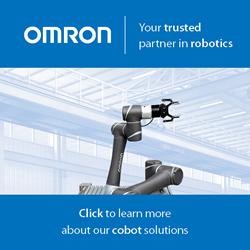Accerion launches breakthrough technology for mobile robots
Accerion introduces Triton, the world's first 100% infrastructure-free, sub-millimeter accuracy localization technology for mobile robots.
Venlo, The Netherlands: Accerion announces the release of Triton, a new localization sensor for mobile robots and automated guided vehicles (AGVs).
Triton sets the new standard in mobile robot and AGV positioning for manufacturers and logistics operators who demand the highest degree of flexibility, adaptability, speed and precision.
After months of field testing in pilot programs across the globe, Triton is robust, proven and ready for high-performance logistics operations, supporting use cases such as free navigation, high-precision docking and virtual line following.
Successful pilot programs include swarm robots supporting the postal industry, e-commerce and integrated warehouse robots.
Infrastructure-free localization technology with sub-millimeter-level accuracy gives mobile robots the ability to perform precision work in dynamic environments.
Warehouse fulfillment is Triton's first market, one of the fastest-growing sectors globally. Accerion responded to market demands, with engineers taking up the challenge to design Triton from the ground up based on client specifications. That meant packing the technology from flagship product Jupiter into a compact localization sensor for smaller AMRs.
"While developing Triton, we listened closely to the market and customers. Optimizing size, performance, cost, reliability, features and Triton's certification set (CE, FCC, RoHS) was a technical challenge, but our engineering team is one of the most competent in our industry, and now Triton is ready to go global," said Accerion Founder and Managing Director Willem-Jan Lamers.
For the autonomous mobile robot sector, easily and accurately determining the robot's location - independent from the environment - is essential, specifically in warehouse logistics and production automation.
Infrastructure-free? How does it work?
Consisting of an optical sensor, an integrated processing unit and Accerion's highly advanced algorithms, Triton scans the floor surface beneath robots and uses it as a reference. Triton uses the floor surface as a map to provide coordinates to the navigation system so robots can localize themselves in the environment.
No lasers. No magnetic tape. No induction lines.
"We pushed hard to get maximum performance out of the hardware. We used a superior camera, expanding the optics' capabilities. Reliability improved dramatically after we put Triton through the ringer to make sure it's beyond robust for industrial activities," said Ruben Vandenheede, Accerion System Engineer.
After a successful pilot program, Triton is available now, and Accerion is shipping to clients across the globe.
About Accerion:
Since 2015, Accerion has been perfecting localization technology for mobile robots and AGVs. Accerion's mission is to make autonomous mobile robots 100% independent from infrastructure and operate with high precision in a flexible, dynamic environment.
In 2019, Accerion received a Series A round of funding from Phoenix Contact Innovation Ventures and LIOF, the Limburg Development & Investment Company, and doubled its staff to 20.
Accerion has manufacturing and logistics clients in the U.S., Europe, China and India. Accerion is expanding to other markets as they explore additional applications for their localization sensors.
For more information, contact:
Jordan Fryers
Business Development Manager
jordan.fryers@accerion.tech
+31(0)6 422 12 090
https://accerion.tech/
Featured Product

Discover how human-robot collaboration can take flexibility to new heights!
Humans and robots can now share tasks - and this new partnership is on the verge of revolutionizing the production line. Today's drivers like data-driven services, decreasing product lifetimes and the need for product differentiation are putting flexibility paramount, and no technology is better suited to meet these needs than the Omron TM Series Collaborative Robot. With force feedback, collision detection technology and an intuitive, hand-guided teaching mechanism, the TM Series cobot is designed to work in immediate proximity to a human worker and is easier than ever to train on new tasks.
